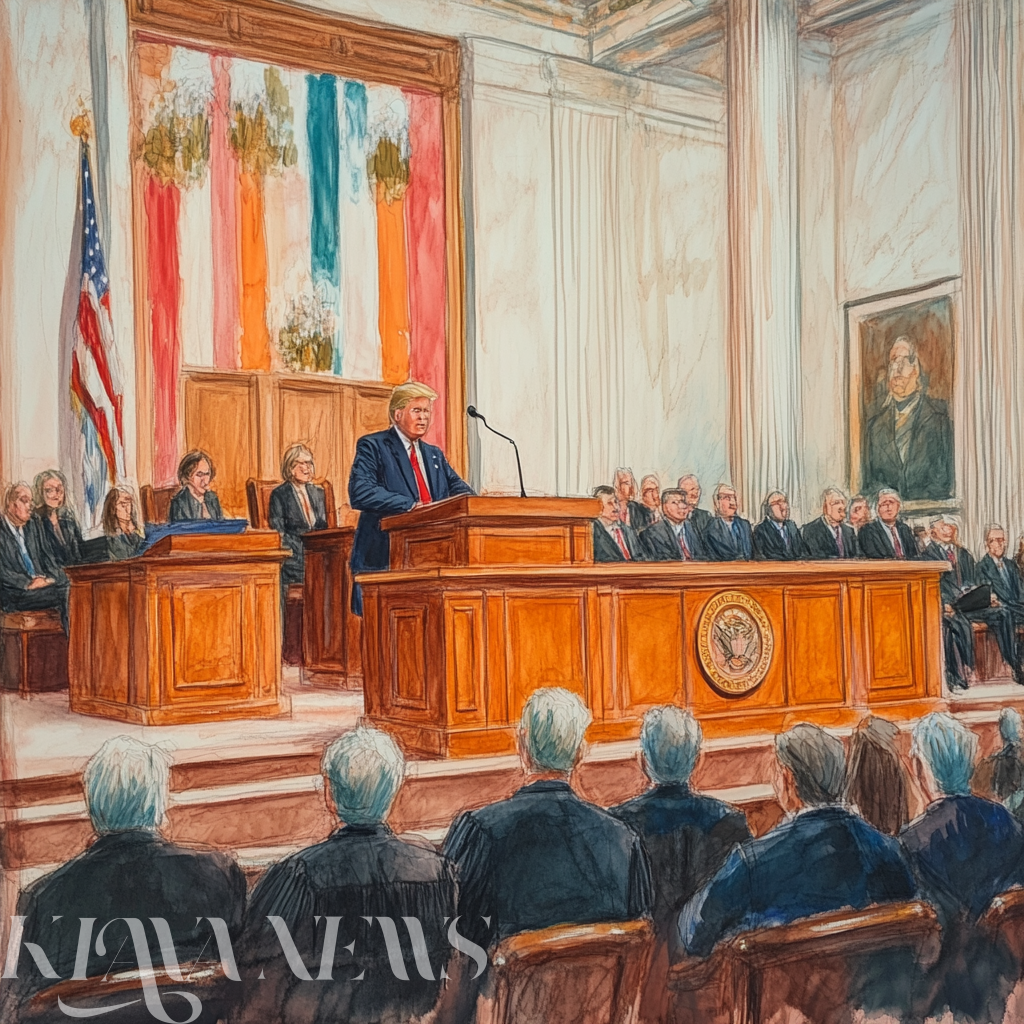Washington, D.C. — President Donald Trump has requested the U.S. Supreme Court to eliminate limitations on his power to remove officials from independent federal agencies which leads to a major legal fight about presidential authority and government monitoring.
Bessent v. Dellinger addresses established legal safeguards which restrict presidential powers to remove independent agency leaders without approval. The central figure of the controversy is Hampton Dellinger who served as head of the Office of Special Counsel (OSC) until he faced dismissal by the White House Presidential Personnel Office in February without justification.
A Battle Over Federal Oversight
President Joe Biden appointed Dellinger to a five-year term in 2023 to lead the OSC agency which investigates whistleblower retaliation claims and civil service law violations. Current law restricts presidential removal of the OSC director to scenarios of inefficiency, neglect of duty, or malfeasance in office because Congress established these standards to protect the agency’s independence.
Trump’s lawyers maintain that these limits breach constitutional separation of powers principles since they block the president’s ability to dismiss federal officials whenever he chooses. During Trump’s appeal Acting Solicitor General Sarah Harris declared that courts lack authority to decide the duration a president must keep an agency head against his wishes.
The Supreme Court’s decision has the potential to extensively affect federal governance by possibly redefining the structure of the Federal Reserve and the Federal Trade Commission (FTC) along with other independent agencies.
Precedent and Legal Debate
The case analyzes the 1935 Supreme Court ruling in Humphrey’s Executor v. United States which confirmed Congress’s power to shield specific agency leaders from arbitrary removal. In the 2020 Seila Law v. CFPB decision the Supreme Court found unconstitutional the limits placed on presidential removal power over the Consumer Financial Protection Bureau (CFPB) director.

Chief Justice John Roberts explained in his majority opinion for Seila Law that the CFPB director had extensive rulemaking and enforcement power across much of the economy while determining the president must retain direct authority over executive branch officials. Trump’s legal team aims to broaden this legal precedent to affect the OSC and additional federal agencies.
Both Justice Clarence Thomas and Neil Gorsuch have expressed readiness to reverse Humphrey’s Executor which they label as a danger to constitutional order. A victory for Trump at the Supreme Court level would represent a significant increase in presidential power.
Broader Political and Constitutional Implications
As Trump battles in court he simultaneously works to reshape the federal government by dismissing independent agency officials and putting a stop to approved congressional funding. His backers claim agency leaders who lack electoral endorsement must remain subordinate to presidential supervision.
The removal of these safeguards risks enabling presidents to manipulate regulatory agencies which could erode government ethics oversight along with financial market regulation and whistleblower protection.
The Supreme Court plans to hear the emergency appeal this week which may lead to a decision that transforms executive power for upcoming decades.



